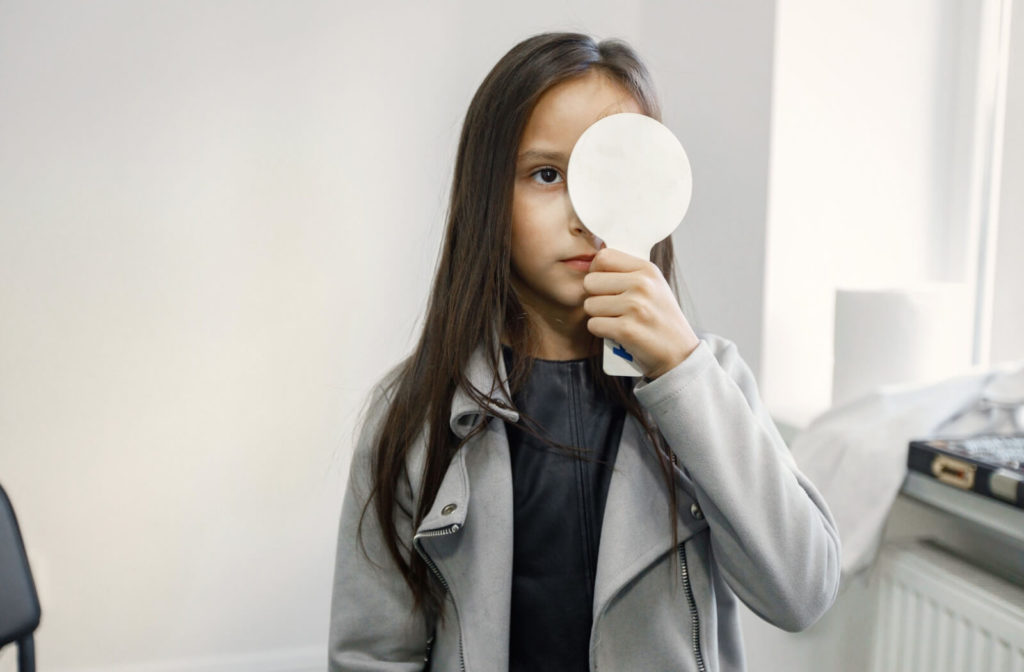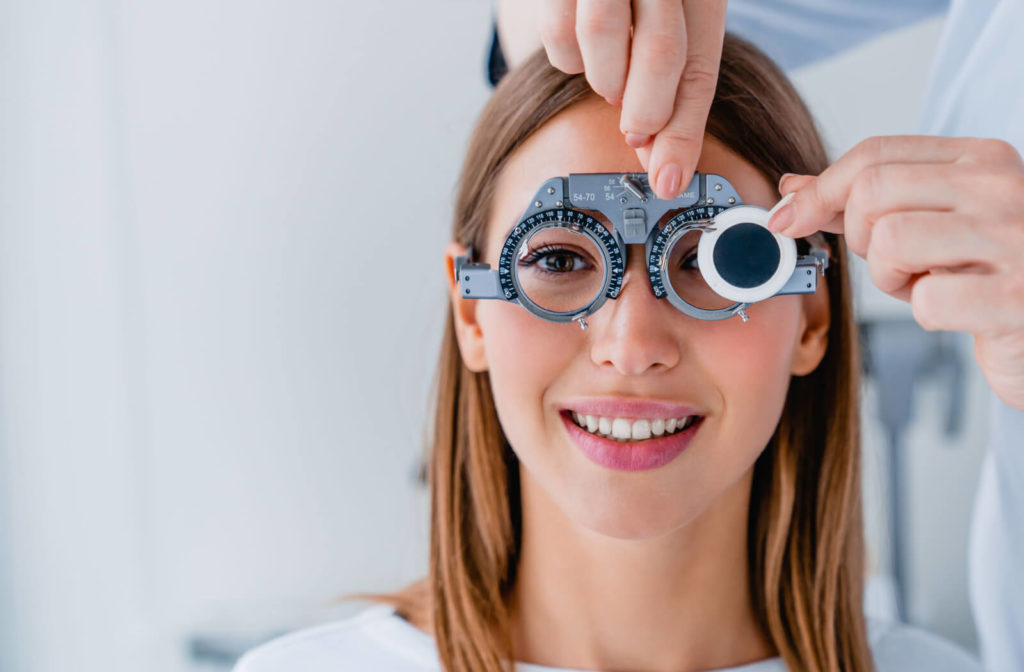One of the things that your eye doctor will likely check during a comprehensive eye exam is whether you have any refractive errors like astigmatism or near or farsightedness. Additionally, they will likely check your visual acuity. You’ll recognize this by the measurements 20/20 or 20/15, for example.
Many people believe that 20/20 vision equals perfect vision. And while it does signify that you have as good of vision as a person should have, 20/20 vision doesn’t mean that you won’t ever need to wear glasses.
This article will explore what 20/20 vision is and how it relates to whether a person still needs glasses or not.
What Is 20/20 Vision?
To understand why you may still need glasses with 20/20 vision, it’s worth exploring what it means because it doesn’t necessarily mean perfect sight.
Essentially the 20/20 measurement represents “normal” vision. For example, 20/40 would be less than the average person, and 20/15 would be better than the average. The benchmark of 20/20 means that you can see things from 20 feet away that others can also see at 20 feet.
To explain further, if you have 20/40 vision, that means you could see something from a distance of 40 feet that most people could see from 20, and the opposite would be the case for 20/15 vision.
When an eye doctor corrects your visual acuity or refractive errors, the goal is typically to bring you as close to 20/20 vision as possible.
20/20 Vision and Still Need Glasses
So, if the goal is to bring your eyesight as close to 20/20 as possible, why would you need glasses if you have 20/20 vision already?
Because 20/20 vision accounts for your ability to see things at a distance. Suppose you have myopia, which means you’re nearsighted or things at a distance are blurry. In that case, glasses or contact lenses are typically a primary way to improve your vision.
But if your vision is already 20/20, you may still need glasses or contacts to correct other refractive errors like astigmatism or hyperopia (farsightedness), it’s possible you may still need glasses.
Astigmatism
Astigmatism describes a refractive error where the cornea (front layer of your eye) or the lens (inner layer of the eye that allows you to focus on objects) develops an abnormal shape. Researchers aren’t exactly sure what causes astigmatism because a child may be born with it, or it could develop throughout their youth or as a result of an injury.
In many cases, astigmatism doesn’t need to be corrected because blurry vision or squinting symptoms are barely noticeable. But if it worsens over time, glasses or contacts could be needed even if you have 20/20 vision.
Hyperopia
Like astigmatisms, farsightedness is also on a spectrum of severity. Someone with severe hyperopia would only see distant objects clearly without correction. Whereas someone with a more mild refractive error may not need any correction, especially if their distance vision is fine.
The severity of your farsightedness determines the corrective action the eye doctor takes. The optometrist may recommend a pair of reading glasses for minor hyperopia and no other refractive errors. In more severe cases, they may prescribe eyeglasses or contact lenses.

Correction Options With 20/20 Vision
If your eye doctor determines that your vision needs correcting, they may discuss several options with you:
- Contact lenses: There are several options available to correct astigmatism or hyperopia. Some optometrists even offer specialty lenses like Ortho-K contacts, which are especially beneficial in children.
- Eyeglasses: Only some people are candidates for contact lenses. For example, contact lenses may not be an option if someone suffers from severe dry eye disease. In these situations, eyeglasses may be the only option. A pair of reading glasses may be suitable if a person is only dealing with minor hyperopia. Your optometrist can help you choose the best option.
- Eye surgery: In some cases, you may not want contacts or eyeglasses, especially if your vision is already decent or 20/20. Some people may be eligible for corrective laser eye surgery. The only way to determine if you’re even a candidate is to have a consultation with a qualified eye doctor who can examine and measure your eye.
Talk About Your Vision Needs With Your Eye Doctor
Your best vision possible doesn’t necessarily mean it’s perfect. But with the technologies we have today, there’s no reason you should settle for squinting, blurry vision, strained eyes, or headaches.
Between 20 and 30, your eyes are typically fully matured and don’t start changing again until you’re in your 40s. If you notice that changes to your vision are beginning to affect your life, give us a call at Total Vision today. You can request an appointment, and one of our team members can book you in with an optometrist.


